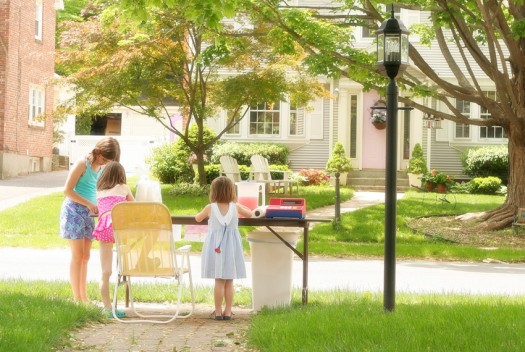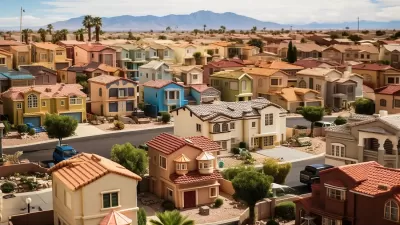A timeless marker of community has emerged as a source of conflict: the lemonade stand is being called an "illegal business." Scott Doyon discusses how getting to know — and support! — your neighbor can be an issue of survival.
"T.J. is, by all appearances, a pretty savvy young entrepreneur. Toying with and measuring the performance of different hours and locations, he ultimately settled on 3-7pm and secured permission to operate in front of a neighbor’s house with desirable, intersection proximity — something that didn’t sit well with nearby resident Doug Wilkey. Wilkey calls the stand an “illegal business” and has contacted the city on at least four occasions in an effort to get it shut down."
Doyon talks about how the form of our built environment can kill connections between people, and make us less likely to get along, much less survive.
"The boogeymen are varied. Sprawl, technology, and our 24-hour news cycle have all conspired — in different ways — to deliver us lemons. They’ve left us disconnected and fearful of those around us."
"So long as we’re content to exist that way, we’ll remain consigned to ever diminishing prospects. But if we actively choose to change, we’ll discover newfound opportunities to turn those raw resources into lemonade."

Destroying property values. Not. Photo credit: © Adwriter @ Flickr.
FULL STORY: You’ve Got Lemons: What now?

Planetizen Federal Action Tracker
A weekly monitor of how Trump’s orders and actions are impacting planners and planning in America.

Maui's Vacation Rental Debate Turns Ugly
Verbal attacks, misinformation campaigns and fistfights plague a high-stakes debate to convert thousands of vacation rentals into long-term housing.

San Francisco Suspends Traffic Calming Amidst Record Deaths
Citing “a challenging fiscal landscape,” the city will cease the program on the heels of 42 traffic deaths, including 24 pedestrians.

Amtrak Rolls Out New Orleans to Alabama “Mardi Gras” Train
The new service will operate morning and evening departures between Mobile and New Orleans.

The Subversive Car-Free Guide to Trump's Great American Road Trip
Car-free ways to access Chicagoland’s best tourist attractions.

San Antonio and Austin are Fusing Into one Massive Megaregion
The region spanning the two central Texas cities is growing fast, posing challenges for local infrastructure and water supplies.
Urban Design for Planners 1: Software Tools
This six-course series explores essential urban design concepts using open source software and equips planners with the tools they need to participate fully in the urban design process.
Planning for Universal Design
Learn the tools for implementing Universal Design in planning regulations.
Heyer Gruel & Associates PA
JM Goldson LLC
Custer County Colorado
City of Camden Redevelopment Agency
City of Astoria
Transportation Research & Education Center (TREC) at Portland State University
Jefferson Parish Government
Camden Redevelopment Agency
City of Claremont





























